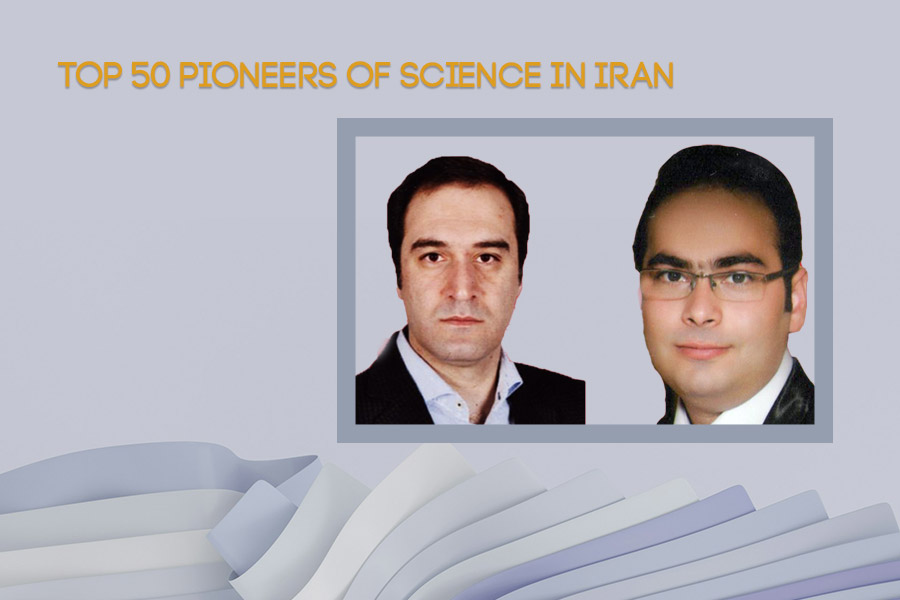
T (+98) 23 3117 0000
Email: info@du.ac.ir
دانشگاه دامغان
دامغان، میدان دانشگاه، دانشگاه دامغان، کد پستی 3671645667
Research Units Under the Supervision of the Research Deputy
1. Industry Relations Center:
Objectives and Responsibilities of the University's Industry Relations Center:
- Execute all duties assigned by the Central Office of Industry Relations at the Ministry of Science, Research and Technology
- Issue introductory letters for student internship placements
- Connect students with industrial centers for research opportunities
- Negotiate with industrial centers to secure research and industrial projects
- Establish cooperation agreements and memorandums of understanding with industrial centers, organizations, and other entities
- Coordinate and organize periodic visits by faculty members to industrial units in the city and province
- Arrange I ntroductory courses in scientific and technical fields
- Communicate research priorities of companies, organizations, and offices to university professors and researchers
- Forward proposed research-industrial proposals from professors and faculty members to industrial centers and follow up on their progress
- Facilitate joint meetings between faculty members, industry managers, organization officials, and boards of directors of industrial and agricultural parks
- Establish technical committees for industry relations and conduct related meetings
- Identify regional and national industrial centers to determine existing capacity for internship placements
- Organize seminars, scientific research visits, scientific and technical assemblies, and exhibitions in collaboration with industries and university units
- Coordinate and maintain ongoing communication with industry relations offices of other university units and the central organization
2. Entrepreneurship Unit:
Introduction to the Entrepreneurship Center of Damghan University:
One of the crucial components in the development of countries, particularly our own, is the transition from an economy based on underground resources to a knowledge-based economy, with entrepreneurship and entrepreneurs playing a key role. Typically, major developments in fostering a knowledge-based economy stem from the growth of entrepreneurship and the presence of creative, innovative, and inventive individuals in a country's economic landscape. Universities have played a pivotal role in this fundamental shift worldwide. In our country, entrepreneurship centers were established to cultivate entrepreneurship and identify and support creative and entrepreneurial forces. The Entrepreneurship Center of Damghan University has initiated its activities with the goal of fostering entrepreneurship and striving to evolve into an entrepreneurial university. As the continuation of any organization or institution's activities requires planning and developing a vision, along with short-term and long-term strategies, the Entrepreneurship Center of Damghan University has compiled its objectives and programs in a comprehensive collection which outlines the educational, research, and promotional programs and policies of the center.
Objectives of the Entrepreneurship Center:
A- Enhance understanding of entrepreneurship within the university community, especially among students and graduates
B- Promote and foster the spirit and culture of entrepreneurship and initiative within the university community
C- Encourage and attract the university community to participate in entrepreneurship training courses
D- Expand pure, applied, and developmental research on entrepreneurs, entrepreneurial projects, the entrepreneurial environment, and other related areas, considering the country's specific conditions and requirements
E- Raise awareness within the university community about entrepreneurship, entrepreneurs, and their role in economic prosperity, job creation, and welfare
F- Identify, educate, and nurture entrepreneurial students and graduates
3. Innovation Unit:
Introduction to the Innovation Center of Damghan University:
Established in May 2017, this center aims to support researchers, innovators, scholars, and interested students by providing a suitable platform for implementing their ideas.
The center offers moral and financial support to students engaged in research and investigative activities, either in groups or individually. This support is provided to applicants during the initial idea formation stage (obtaining preliminary information about scientific and technical specifications, implementation feasibility, implementation history, market potential, etc.). It's worth noting that the primary audience for this section consists of students who, if they have a scientific and practical idea or plan, can establish themselves in this center to benefit from the intended support after an initial review of their idea and a scientific interview, if accepted.
One of the notable advantages of this center is that it helps participants gain the necessary readiness to enter the incubator center (pre-incubation or incubation periods). In other words, the innovation center marks the beginning of a path towards entering the incubator center, where applicants can stabilize their ideas while also acquiring sufficient information about company registration and acceptance into the incubator center.
Objectives of the Innovation Center:
A- Promote and develop a culture of innovation within the university
B- Play an active role in realizing innovation
C- Identify and empower creative, innovative, and entrepreneurial students and professors, providing grounds for commercializing their scientific achievements for knowledge-based business activities
D- Enhance the role of innovators in university development through the creation of knowledge, technology, and knowledge-based businesses
E- Accelerate the transformation of innovative ideas into products
F- Support and nurture innovative groups to facilitate their entry into incubator centers
4. Institute of Biological Sciences:
The Institute of Biological Sciences successfully obtained principal approval in 2011 through the efforts of faculty members from the Biology Department and the support of the Research and Technology Deputy. Recognizing the country's need for applied and fundamental research, as well as the crucial role of biological sciences in society, this institute strives to play a significant role in knowledge production and the generation of new ideas. Additionally, it aims to address existing challenges in the fields of medicinal plants, neurobiology and cognitive sciences, restorative biology, and the preservation of the country's biological resources.
Given the historical background of Damghan city as a center of civilization and knowledge, combined with talented and young professors and researchers alongside advanced facilities and equipment, the institute offers a promising outlook for research in various fields of biological sciences. Currently, it is actively implementing numerous research projects in the areas of cell therapy, neuroscience, medicinal plants, embryology, and physiology, as well as plant and animal tissue culture.
This institute comprises four research groups: Cellular and Molecular Biology, Physiology, Plant Sciences, and Biochemistry, with over 19 researchers contributing to its work.
5. Data and Computation Center:
This center, equipped with the latest technologies in the field of information technology and data computation, is located in the information technology domain and is ready to provide services. High availability of services, reliable service delivery, and reduced downtime are the main features of the Data and Computation Center. The computational capacity exceeds 100 GFLOPS.
6. University Central Laboratory:
- Cellular-Molecular Research Laboratory
1- Molecular Laboratory
- Semi-quantitative and quantitative evaluation of gene expression using RT-PCR method
- Western blot analysis
- Zymography
- Enzyme assays
- DNA purification
- SDS-PAGE
- Lipid peroxidation assay
- ROS assay
2- Cell Culture Laboratory
- Familiarity with cell culture principles and strategies for obtaining various adult and embryonic cell lines
- Implementation of basic techniques for culturing and maintaining diverse cell lines, including:
- Extraction and culture of mesenchymal stem cells from different sources
- Extraction and culture of neural stem cells
- Extraction and culture of embryonic fibroblast cells
- Cell treatment and examination of its effects on cell growth conditions
- Inducing cell differentiation into various cell lineages
- Isolation of peripheral blood mononuclear cells
3- Histology Laboratory
- Understanding the tissue structure of different body systems
- Preparation of microscopic tissue sections and application of various general and specific staining methods
- Performing immunohistochemistry, immunocytochemistry, and immunofluorescence to measure intracellular and tissue protein markers
4- IVF and Embryo Culture Laboratory
- Preparation of gametes
- In vitro fertilization
- Gamete and embryo culture
- Long-term freezing and storage of gametes and embryos
- Study of stem cells involved in reproductive physiology
5- Electrophysiology Laboratory
- Study of electrical activity at the cellular level or ion channels on the cell membrane surface using the patch-clamp technique
- Examination of collective electrical activity of cells and behavior of neural networks using the field potential recording technique
- Identification of potential mechanisms for regulating and controlling neurotransmitter release and neural synapse function through modifications to existing synapses
6- Behavior Laboratory
- Examination of laboratory rat behavior under healthy conditions or following drug injection
- Behavioral studies including the investigation of learned fear, spatial learning, balance, and motor coordination
- Access to different parts of the brain using a stereotaxic device and three-dimensional spatial coordinates for drug injection or electrical stimulation



